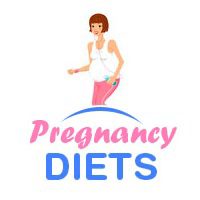News of pregnancy is exciting, and of course you want to be sure that your little one gets the best possible beginning. Carrying extra pounds when you conceive can be an issue for your health, as well as your baby’s.
Your pregnancy diet, if chosen carefully and well, can help your baby grow without causing you unnecessary weight gain. Exercising while pregnant will strengthen and tone your body for the hard work of childbirth and delivery.
Risks
When pregnant, there are certain health risks that are exacerbated when you are overweight. These include a greater likelihood of developing high blood pressure and/or diabetes.
Gestational hypertension often shows itself in the second half of a pregnancy, and it must be very carefully monitored. Unchecked, it can lead to preeclampsia and eclampsia, which can cause coma or death for both mom and baby. Note that this condition is treatable when caught early, and the outcome is nearly always good for those receiving regular prenatal care.
Overweight and pregnant moms are more likely to have cesarean deliveries, and they can experience a longer, more difficult recovery period from this surgery. Babies born to overweight mothers can run into additional risks, such as prematurity, some kinds of birth defects, and time spent in the neonatal intensive care unit (NICU).
Overweight and Pregnant with Twins
When you are overweight before you become pregnant, then conceive twins, you are faced with double the joy, but also some extra challenges. Work closely with your doctor to determine optimal weight gain, which is generally recommended at 150% of single pregnancies when you are carrying twins. If your physician recommends you gain more than you hoped, remember that two babies and two placentas are heavier than one. This is not the time to go on a low calorie diet intended for weight loss, as it could risk your babies’ health.
Diet
The perfect pregnancy diet for overweight women sounds a lot like the recommendations you have heard for maintaining a healthy lifestyle and encouraging weight loss. Lean protein, whole grains, and lots of fruits and vegetables will give you a nice variety of vitamins and minerals.
Processed foods and sweet snacks have no place in your eating habits, because they bring calories in without any nutrition. Caffeine should be avoided, along with chemical-
Focus on extra servings of the powerhouse foods that deliver nutrients critical to your baby’s growth. Spinach, beans, asparagus, and oranges
give you folic acid for the prevention of spina bifida.
Get the calcium that both of you need for healthy bones with low-
Symptoms
The changes in your body during pregnancy are profound, which can make it difficult to determine what is normal and what is not. Your physician is happy to answer your questions, so be sure to mention anything that seems out of the ordinary. Be particularly vigilant for these symptoms, which could signify something more serious than standard pregnancy aches and pains:
Headaches, sudden rapid weight gain, swelling in your face and hands, pain on the right side of your upper abdomen, any issues with vision.
Your doctor is your best resource for keeping you healthy, so your baby has everything needed to grow healthy and strong. Discuss your concerns, as well as your plans for diet and exercise.
Make a plan together for optimal pregnancy weight, for the sake of your health and safety. Most important of all, be sure to enjoy your journey to parenthood ? it’s an unforgettable adventure!
